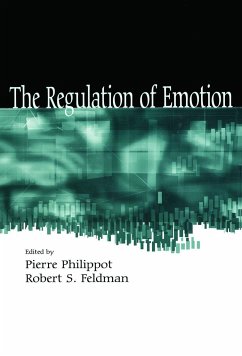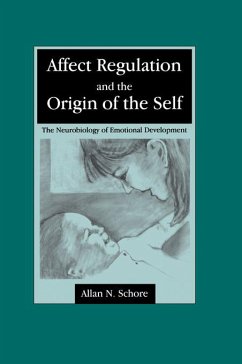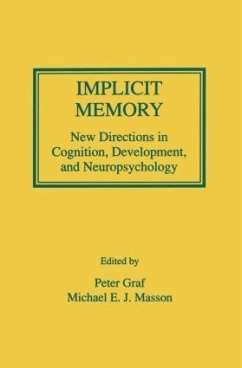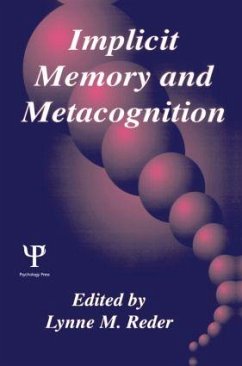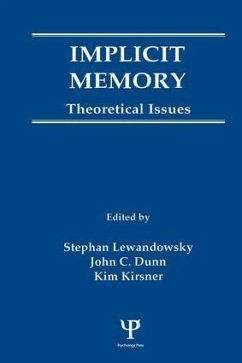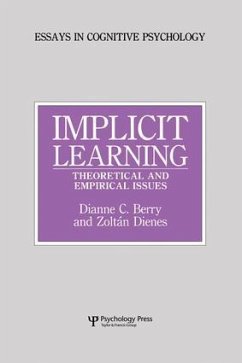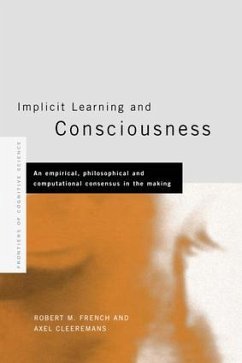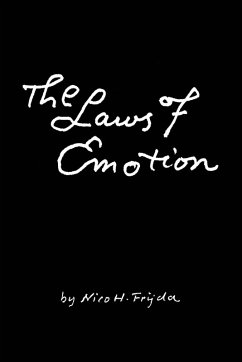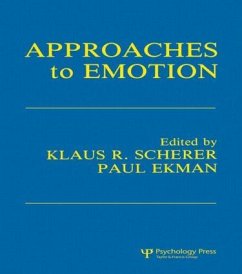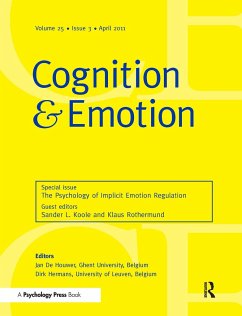
The Psychology of Implicit Emotion Regulation
A Special Issue of Cognition and Emotion
Herausgeber: Koole, Sander L; Rothermund, Klaus
Versandkostenfrei!
Versandfertig in 1-2 Wochen
56,99 €
inkl. MwSt.

PAYBACK Punkte
28 °P sammeln!
Emotion regulation has traditionally been conceived as a deliberative process, but there is growing evidence that many emotion-regulation processes operate at implicit levels. Implicit emotion regulation is initiated automatically, without conscious intention, and aims at modifying the quality of emotional responding. This special issue showcases recent advances in theorizing and empirical research on implicit emotion regulation. Implicit emotion regulation is pervasive in everyday life and contributes considerably to the effectiveness of emotion regulation. The contributions to this special i...
Emotion regulation has traditionally been conceived as a deliberative process, but there is growing evidence that many emotion-regulation processes operate at implicit levels. Implicit emotion regulation is initiated automatically, without conscious intention, and aims at modifying the quality of emotional responding. This special issue showcases recent advances in theorizing and empirical research on implicit emotion regulation. Implicit emotion regulation is pervasive in everyday life and contributes considerably to the effectiveness of emotion regulation. The contributions to this special issue highlight the significance of implicit emotion regulation in psychological adaptation, goal-directed behavior, interpersonal behavior, personality functioning, and mental health.





